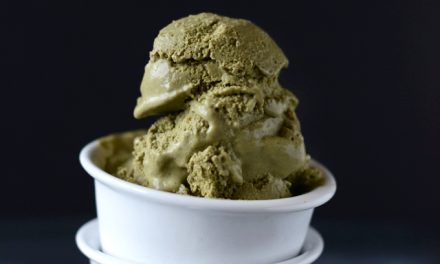If you’ve eaten a Thanksgiving dinner and felt sleepy OR had an early morning cup of coffee and felt energized enough to take on the day- then you understand how food can alter your feelings, energy, mood, etc. However, do you know that some foods have a lasting influence on mental well-being? It turns out that what we eat can be responsible for building our brain and keeping it functioning properly.
Sadly, over the last 50 years, Americans have moved away from nutrient-dense foods in favor of processed, refined ones- or what we call the Standard American Diet (SAD). And yet studies show direct links between what we eat and our mental state. Those who eat more nutrient-dense, whole foods- as I mentioned above- like we used to, are less likely to experience depression.
Did you know that your gut has a brain of its own? “It’s called the enteric nervous system (ENS) and it communicates directly with our primary brain through the vagus nerve. Surprisingly 90 per cent of the messages communicated carry information from the gut to the brain, rather than the other way around. This might explain the new evidence that is coming to light that shows that irritation (such as diarrhea, bloating, pain, constipation) in the GI tract may lead to mood changes. This may help explain why people with IBS have higher levels of anxiety and depression,” notes the article.
Over the last couple of years there has been a lot of discussion about the gut microbiome, an ecosystem which consists of several hundred different species of bacteria (about 10-100 trillion in total). When there is an imbalance in this ecosystem, which could be an overgrowth of ‘bad’ bacteria or a lack of diversity, it can lead to a host of issues like, autism, obesity, depression, anxiety, allergies, irritable bowel syndrome, asthma and other digestive and mental health issues.
But, good gut bacteria can lower stress and help produce serotonin, dopamine, norepinephrine, and GABA- which all help with your mood. A balanced microbiome also contributes to a healthy immune system.
Therefore, to improve your mood and health, you first need to address any digestion issues you might have and make sure you are eating foods which further support good mental health. Here are some suggestions from Huffpost Living:
Remove inflammatory foods. Avoid processed, refined foods and any foods that you may be intolerant or allergic to. Follow an anti-inflammatory diet, high in fruits, vegetables, fish fiber, and healthy fats, like the Mediterranean diet.
Control your blood sugar. Avoid sugar and refined carbs- choose complex carbohydrates instead that are high in fiber: whole grains, veggies, and beans.
Eat protein at every meal. Amino acids in protein are precursors for neurotransmitters like serotonin, dopamine, and norepinephrine. Don’t forget though, you DO NOT HAVE TO EAT ANIMAL PRODUCTS to do so. There are plenty of plant protein sources and in some cases, that may be better for you than red meat.
Don’t be afraid of fat. Our brains are made up of 60 per cent fat so make sure to include a balance of healthy fats- omega 3 fats (like wild salmon- if I lived on the West Coast I’d stay away from ALL FISH), rainbow trout, herrings, mackerel, sardines, anchovies, flax seed, chia seeds, and walnuts).
Eat foods high in phytonutrients and antioxidants. Eat the rainbow! Try and get in as many colors and varieties of fruits and veggies as possible. Also, eat them raw, that way you get the benefit of the fiber.
Drink enough water. Your body cannot function properly without enough water. And, by the time you realize you are thirsty, you are already dehydrated. To understand how much to drink, divide your body weight in half and that will give you a good start on the amount of ounces of water you should be drinking per day. Add more if you need it.
Keep caffeine to a minimum. Caffeine may give you a short term boost but it prevents absorption of key nutrients. Instead, try green tea or herbal tea.
Get outside. Make sure to move, let the outdoors be part of your de-stressing routine, and soak up that good Vitamin D, which has an impact on nearly every cell in your body and is imperative for good mental health.
Supplement to fill any gaps. If you don’t know what to take, or what you need, consult a local homeopathic doctor who can help.
Control your stress. Anxiety can have a huge impact on gut health and inflammation. As soon as you can, learn how to manage your stress via relaxation techniques like deep breathing, meditation, or exercise.
Get enough sleep. The glymphatic system only works at clearing away debris and bringing nutrients into the brain, when we are asleep. Adults should get at least seven-eight hours.
https://www.youtube.com/watch?v=MIqUtPfFhno
Once your body is running like a well-oiled machine, you’ll sleep better, have more energy, have less pain and your mental health will improve as well. Promise. You can do it. I did a long time ago, check out my story here.
Source: Huffpost Living












